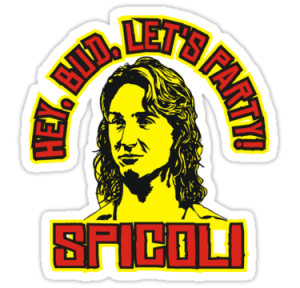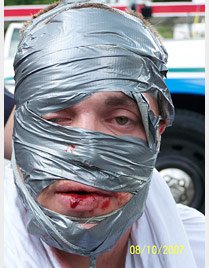My fellow OCD buddy Steve Repsys pinged me the other day about an A&E program called “Obsessed.” This morning I finally got around to checking out some clips. It has it’s good points. And it’s not-so-good points.
Mood music:
http://youtu.be/72rWAe0pUdQ
I’m a big advocate of any programming that educates people about OCD, addictions and other demons of the soul. That’s why I’ve written a lot about the movie being made called “Machine Man.” But reality TV leaves me cold almost every time because, well, it’s not really reality.
There’s always more drama when the cameras roll. People change in front of the camera whether they mean to or not. Nobody wants to be boring on film, so, somewhere deep in the brain, the instinct to play things up nags at you.
Add some drama music and fancy lighting and you get something that’s not 100 percent truth. Lies infect the mix.
A&E is a chief offender. Last Halloween they did a show called “Amityville: The Last Testament” where a clairvoyant woman who investigates paranormal activity for the police is contacted by Ronnie DeFeo, who has been serving a life sentence for killing his family in their Amityville home (he originally claimed demonic possession made him do it, and the crime gave birth to the “Amityville Horror” movie and book franchise). In the episode, DeFeo — famous for his constant changing of stories — again claims posession, and reaches out to the woman to help prove it.
Somewhere in the episode, she says she has to investigate the house, and there she is, in a house that is clearly not THE house to those who have seen pictures of the inside or been there. It’s also well known that the current owners allow nobody inside to film, especially where the haunting hoax is concerned.
People eat it up and accept it as truth because they don’t know any better.
Tell someone a program is based on a true story and they instantly believe everything in it really happened.
That episode ran through my head as Steve presented me with the link to this “Obsessed” series. So let’s have a look. 
The series is explained this way on the A&E site: “Intense and highly personal, A&E’s true-life docu-series “Obsessed” examines the lives of everyday people impris- oned by unmanageable, repetitive behaviors and sometimes debilitating fear. Whether it is Obsessive Compulsive Disorder, Panic Disorder, Social Anxiety Disorder, General Anxiety Disorder, Hoarding or a variety of phobias, the unscripted series gives viewers a chance to see first-hand how an obsession can radically affect a person’s life.”
There’s the woman who has trouble with intimacy because she’s afraid to tell her new boyfriend about her OCD. There’s a guy obsessed about how to cross a threshold. Then there’s Chad, a rock musician who suffers from severe anxiety, accompanied by a hand-swiping ritual. Passing cars terrify him. He takes care when crossing on of the spaces between granite slabs that make up the sidewalk.
There are shards of truth throughout, and I’m glad to see that. A lot of people suffer from these things, and the uneducated just thinks they are weird.
But the Chad segment plays up every stereotypical quirk to the point where the viewer misses something important. They hear the dramatic music. They see the facial expressions and the uncomfortable looks from friends and family.
But the camera can’t capture some of the more hurtful truths about OCD and anxiety. Things eat at you in a more gradual, quieter fashion. By the time the hand washing and contorted expressions begin, the sufferer has been boiling in obsessive thinking for hours. To me, that’s the worst part — when you’re alone, trapped in a spinning mind. It’s a lonely, alien feeling. You feel like the last man left standing after a nuclear explosion. Nothing is left. Now what the fuck do you do?
By the time the stereotypical behavior comes out, there’s almost a relief because you’ve reached the beginning of the end of an attack.
The cameras will always capture the latter part. But it can never, ever touch the stuff that starts it all — the insanity that attacks the center of the mind.
That’s my take, anyway. Someone else with OCD will probably explain it differently.
Which is actually why, despite all I just said, “Obsessed” is worth checking out.
Even though the drama is amplified and A&E has a history of loosening up on truth in favor of theatrics, there are some important truths in there.
People often see someone with the repetitive actions and wonder what that person’s problem is. This series will at least answer that question. That’s a start.
And in breaking a stigma, we have to start somewhere.
Even a channel like A&E.








 I don’t like cooking all that much, but maybe I’d do the meal prep some more if I had one of these.
I don’t like cooking all that much, but maybe I’d do the meal prep some more if I had one of these.